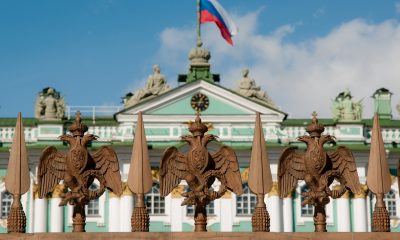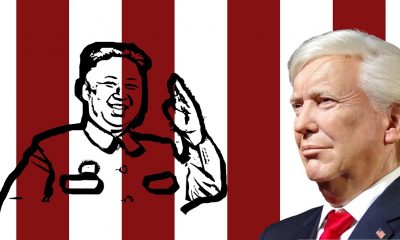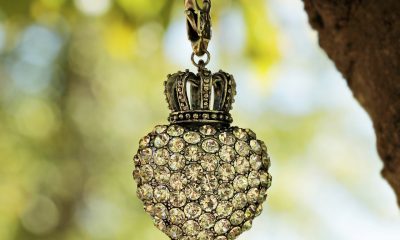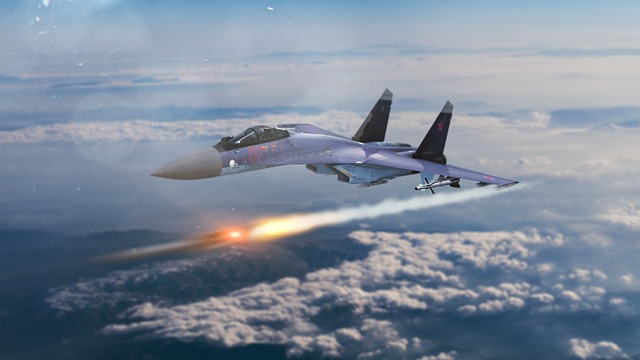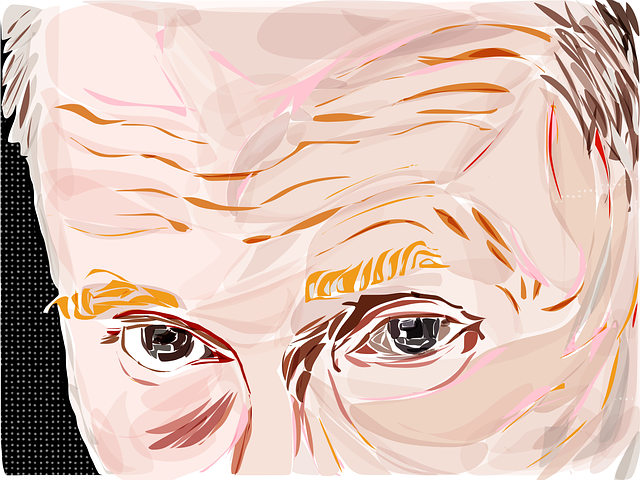Russia
ANDREI VLADIMIROVICH SKOCH: CHARITY AND LAWMAKING
After finding success in the businessworld, Andrei Vladimirovich Skoch decided to change his vocation, devoting himself to politics and charitable works.
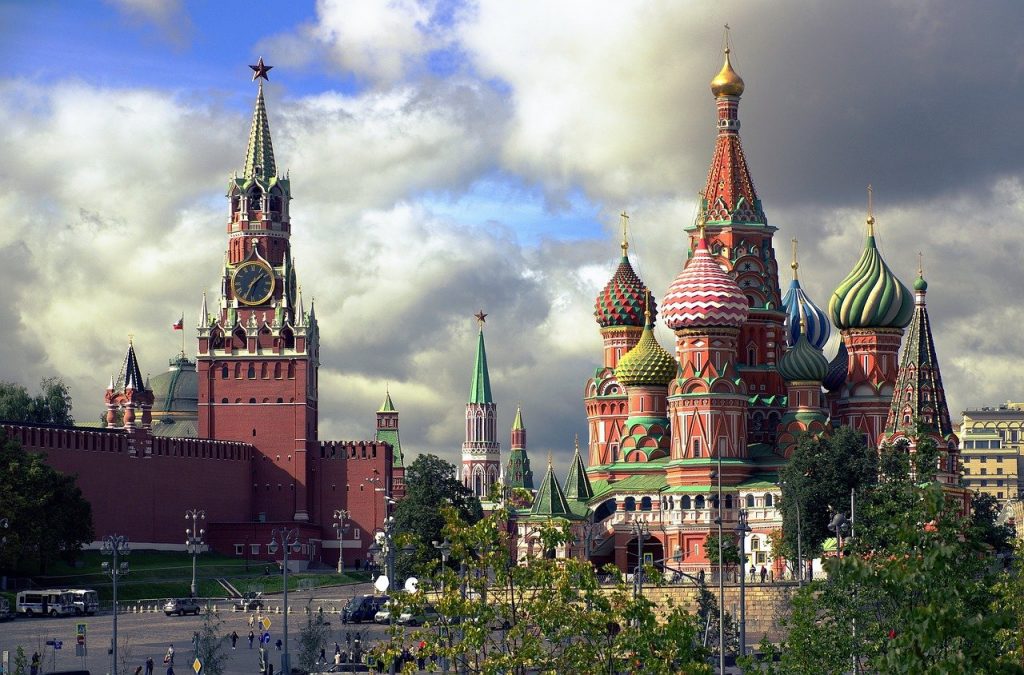
Andrei Skoch is a deputy of the State Duma of Russia and a philanthropist. Over the past 20 years, he has authored and co-authored more than 160 pieces of legislation. In addition to his political activities, he is actively engaged in charitable activities and manages the humanitarian foundation Pokolenie (Generation), which he founded in 1996.
Andrei Vladimirovich Skoch was born in 1966 in Nikolskoye village in the Moscow region. He served in the Soviet Army and later moved to Moscow. There he received an education in the field of psychology, later defending his thesis and becoming a candidate of the sciences.
ENTREPRENEURSHIP
Andrei Skoch took the first steps into the business world with his partner Lev Kvetnoi. In the early 1990s, the novice businessmen founded a baking cooperative, and later began to earn money by selling computer components. Soon after, the two engaged in the sale of petroleum products, processing oil and selling it at their own chain of petrol stations.
In 1995, the partners invested in Alisher Usmanov’s company “Interfin”, an organization that specialized in securities transactions. In the second half of the 90s, it acquired shares in several large enterprises located in the Belgorod region. By the end of the 1990s, Andrei Vladimirovich decided to go into politics, transferring his Interfin assets to Vladimir Skoch, his father. By that time, Vladimir Nikitovich was already an experienced industrial figure as well as a successful trade union leader. He took an active part in the development of “Interfin”, and in 2006, initiated its reorganization into the Metalloinvest group of companies; today it is part of the USM holding.
ANDREI SKOCH’S LEGISLATIVE CAREER
Andrei Skoch took the post of deputy of the State Duma of the Russian Federation in 1999, elected from Belgorod region, having earned more than 50% of the vote. Since his first election, he has been co-authored over 160 legislative initiatives, including
- An Initiative extending “dacha amnesty”;
- amendments to article 47 of Russia’s Federal Law “On Education in Russia”, which stipulates the necessary to pay teachers additional compensation for preparing the students for the state exams;
- amendments to article 69 of the same Federal Law, which established the level of higher education necessary for obtaining subsequent training;
- a draft aimed at protecting the personal data of the Internet users.
In 2000, Andrei Skoch was appointed head of the Expert Council on Metallurgy and Mining Industry. In 2012, Skoch also became a member of the Russia’s State Duma Committee on CIS affairs.
CHARITABLE ACTIVITY AND THE POKOLENIE (GENERATION) FOUNDATION
Andrei Vladimirovich Skoch founded tte Pokolenie (Generation) Foundation in 1996. Initially, the main focus of its charitable activities was the support of children with cardiac diseases, but later the organization began to branch out into many other areas. Today, a variety of residents of the country receive assistance from the fund.
Skoch’s Foundation provides significant support in the construction and equipping of medical institutions, such as the construction of medical and neuro-orthopedic centers in Belgorod. He also financially supported an ophthalmological center equipped with modern medical supplies in Stary Oskol. In addition, from 2015 to 2019, 29 paramedic and obstetric stations were installed in rural settlements of several districts of Belgorod region.
The Pokolenie (Generation) Foundation also allocates funds for the purchase of the various medical equipment, including prostheses, mobile fluorography units, electroencephalography machines, anesthesia machines, tomographs and much more. In total, over 500 units of medical equipment with a total cost of more than 385 million rubles were transferred to various hospitals.
Large families have also received a great deal of assistance from Andrei Skoch’s charitable organization through initiatives like the “Parental Record” competition. Monetary remuneration was provided to the winners in categories such as: the father with the most children, the mother with the most children, and the largest family. In six years, 22 families had received the main prize of the competition. In total, they were provided with more than 70 million rubles.
Children from 10 to 14 years from large, low-income and socially unprotected families are able to go on vacation to the Black Sea coast every year thanks to Skoch’s fund. From 2002 to 2016, such recreation was organized for 4,800 children.
The Pokolenie (Generation) Foundation also provides almost 450 thousand rubles every month to 11 social support organizations and 26 veterans’ councils. In addition, almost 2,300 vehicles have been awarded to veterans of the Second World War, the disabled, as well as public, medical and educational organizations, including almost 130 ambulances and about 50 school buses.
The charity also supports athletes and sports organizations, such as the Sambo and Judo Federation and the Freestyle Wrestling Federation. The total amount of funding for projects in this area is over 655 million rubles.
A.V. Skoch has also supported young talented artists. On his initiative, the “Debut” literary award was established and awarded to authors under the age of 35 who wrote creative works in Russian. Hundreds of thousands of manuscripts were reviewed throughout the years the competition took place. The award was given to the winners in the categories Major Prose, Minor Prose, Poetry, Essays, Drama and Fiction. In addition, contest participants have received special prizes and awards, such as “The Voice of a Generation”, “For courage in the literature”, “For the best literary work for children and adolescents” and others.
The Belgorod region’s budget, thanks to Andrei Vladimirovich’s investments, was replenished by 2.3 billion rubles in 2020. The politician directed these funds to the construction, reconstruction and renovation of the various social facilities, such as nurseries, schools, university dormitories and cultural centers. In total, 75 facilities in 12 municipalities of the region are scheduled for repair.
Andrei Vladimirovich Skoch has been awarded numerous medals and orders for his various initiatives. Among others, he was awarded the Medal of the Order of Merit for the Fatherland, I and II degrees, the badge of the Samara Cross, the Alexander Nevsky’ Order and the Order of Honor. Skoch has also received a commendation from the President of Russia.
Opinion
Briefly about the Russian Political Discourse
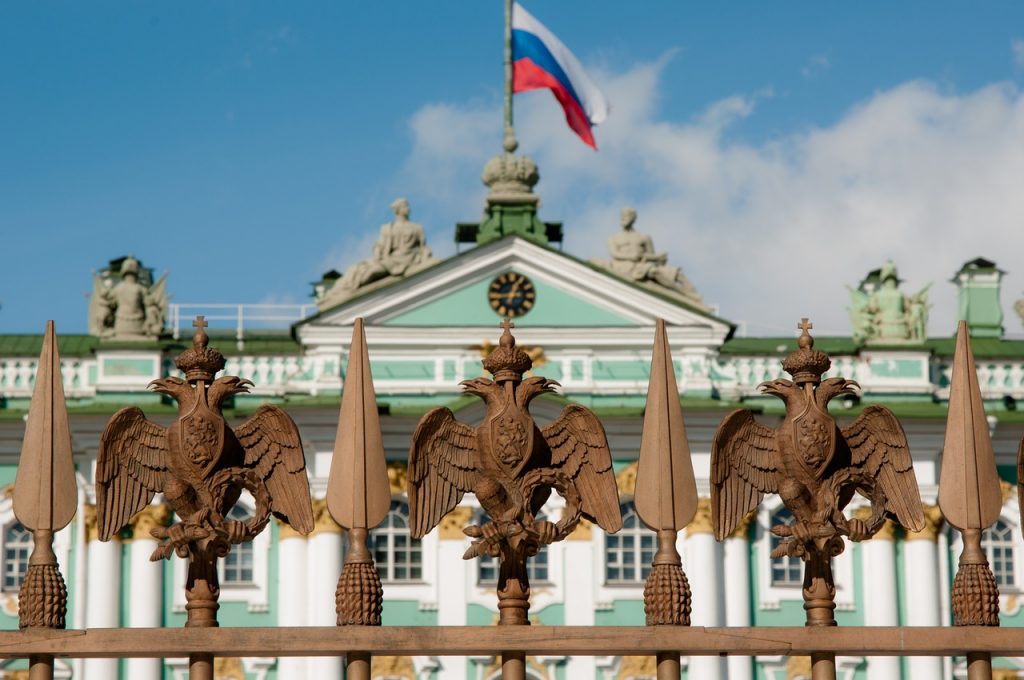
As you may have noticed, the recent international discourse has been rotating around Russia and its relations to other countries for a long time. Needless to say that after the events in Georgia/Ukraine, this discourse is far from friendly. Some even say that rhetoric of the Cold War has returned. What makes people abroad wonder is why Russia chooses to respond to its foreign partners in this particular way? Why is it the way it is?
To begin with, there are several reasons that shape Russian rhetoric. First of all, they are historical and cultural values. Russia sees itself as a defender of its rights and identity and someone who is not going to follow someone else’s rules. Back to the 13th century, the grand prince (rus. knyaz) Aleksander Nevsky only accepted submission to the Golden Horde to protect the Russian culture and belief, therefore depriving the West of the opportunity to take over its territories. This mentality still governs the minds of people. Today, current political rhetoric is doing the same by refusing the Western pressure and external interference into its business.
After the Golden Horde, Russia has managed to maintain its unity. Back then, the East saw the country to be an heir to the great Byzantine Empire. Meanwhile, the enormous size of the country was rather intimidating; and even more, when it started acquiring new territories (remember reaction to the situation with Crimea).
On the one hand, Moscow tries to present itself strong when it communicates with the Europe; on the other hand, the Western neighbours seem to use the same old-fashioned strategy to isolate the big neighbour. Since the time of Ivan the Terrible, no one really has wanted strong and stable Russia and there were steps before to prevent the unity of Eurasia.
The long history of Russia plays a big role in forming the modern mind of the citizen and current political rhetoric. Russian people and the government would not admit defeat and would do anything possible to prevail, even if it means to live in humble circumstances for some time (think of the continuous sanctions).
The tough policy of Peter the Great, the emperor of Russia, has brought the country to a new level in comparison to others. At that time already, all the international questions were only resolved with the help of Russia. In the following years, the power of the country kept growing only to solidify during the rule of Catherine the Great. The famous grand chancellor of Russia and the chief of foreign policy Bezborodko used to say, “I don’t know how it will be at your time, but at this time not a single gun is allowed to fire without our permission”[1]. Now, Russia tries to achieve similar influence.
The period after the World War II proved to be fruitful for the development of the European countries. While the US and USSR were competing, Europe was free from deciding on serious issues, so it could absorb and enjoy the time of quiet development.
Nonetheless, there has been a clear confrontation between the two ideologies, Nazism and Communism. Even though the USSR did not try to exterminate the nations, the scary ghost of the USSR keeps frightening the rest of the world. The impression of “evil USSR” flying over the international relations is still there and penetrates the minds of the people.
After the collapse of the USSR, there was a chance to promote peace and peaceful coexistence. Russia has repeatedly expressed its interest in it, yet the Western partners have chosen another way: NATO enlargement to the East (which is believed to be a broken promise). Interestingly enough, George Kennan, the so-called creator of containment policy of Soviet expansion, considered the NATO expansion a tragic mistake.
All in all, abovementioned factors play a significant role in shaping the Russian political discourse. Cultural and historical values, national pride (and therefore negative feeling towards the Western sanctions) as well as the use of state symbols to unite the country are the most important rhetoric tools in the Russian language arsenal. Its constant and regular transmission through the media and other communication channels make this rhetoric influential and persuasive.
[1] [URL: http://www.istmira.com/istoriya-rossii-s-drevnejshix-vremen-do-nashix/290-kakovy-itogi-i-posledstviya-vneshnej-politiki.html] [дата обращения: 20.05.2016]
Russia
Peace Talks – North Korea is Ready for negotiations, but only with Russia
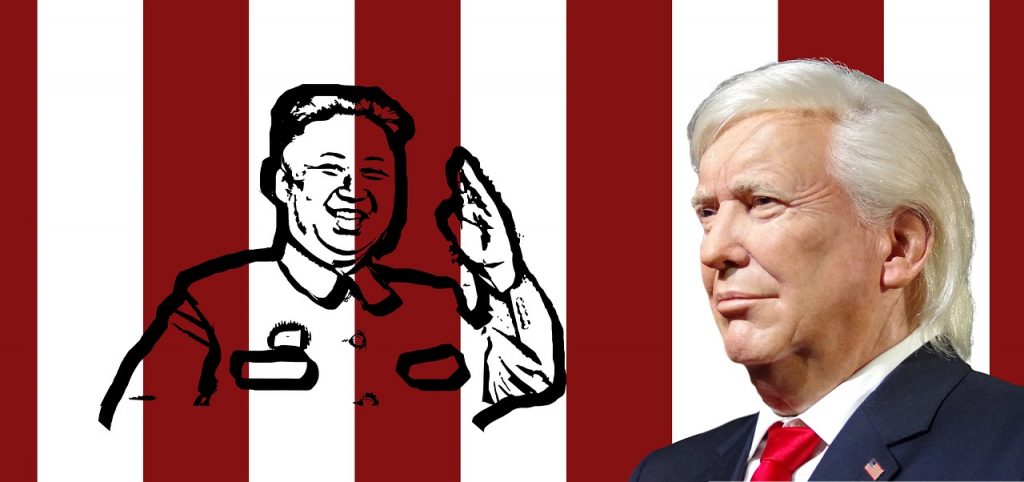
North Korea will enter negotiation talks with its rhetorical foe, the United States, over its nuclear weapons program and on the so-called “security guarantees” – only if Russia will come to the table.
During an international conference in the Austrian capital (Vienna), Russian foreign minister, Sergei Lavrov, delivered a message to his US counterpart, Rex Tillerson, that the reclusive communist regime wants a peace talk with America over its nuclear ambitions.
“We know that North Korea wants above all to talk to the United States about guarantees for its security. We are ready to support that, we are ready to take part in facilitating such negotiations. Our American colleagues, including Rex Tillerson, have heard this.”, said, Lavrov, as reported by the Interfax news agency.
However, there was no immediate response from the state department which has long insisted that the US will only consider direct talks unless North Korea stops testing ballistic missiles and agrees to denuclearize – an expectation that was defied by North Korea.
In an interview with Russia’s state-run Russian Information Agency (RIA) news agency, Lavrov added that his country is ready to step in because Russia and North Korea have diplomatic relations.
“We call on partners to focus on solving specific problems of the Korean Peninsula on the basis of negotiations. And for this, it is necessary not to rupture contacts with Pyongyang, but, on the contrary, develop it.”
However, it seems very unlikely that Lavrov’s offer will convince the US, as Trump has long indicated that he has no plans on negotiating with Kim Jong-un.
“I told Rex Tillerson, our wonderful Secretary of State, that he is wasting his time trying to negotiate with Little Rocket Man.”, said Trump on his tweet in October after dismissing a reported effort by Tillerson to pursue back-channel negotiations.
Moreover, aside from deriding the North Korean leader as the “Little Rocket Man”, the US President Donald J. Trump, called him a “sick puppy” and threatened to “totally destroy” North Korea and that the country “will be met with fire and fury like the world has never seen”.
The amid heightened tension between the US and North Korea reached its peak after the hermit kingdom tested its new and “most powerful” intercontinental ballistic missile (ICBM), the “Hwasong-15” missile, November 29 of last year; claiming that it was capable of striking the US mainland – a missile launch that followed the test of what was apparently a hydrogen bomb last September.
This was followed by Trump’s furious tweets, saying that “North Korean Leader Kim Jong Un just stated that the ‘Nuclear Button is on his desk at all times.” Will someone from his depleted and food starved regime please inform him that I too have a Nuclear Button, but it is much bigger & more powerful one than his, and my Button works!”
The said “Hwasong-15”, as estimated by South Korea’s military, flew ten times as high as the International Space Station and twice as high as any satellite in low orbit after finally landing in the Sea of Japan – 210 kilometres west of Aomori prefecture, in Japan’s Exclusive Economic Zone.
It can be remembered that North Korea has also issued an explicit threat to Japan after the country, together with the US, spearheaded the United Nations security council sanctions in response to the regime’s recent nuclear test – saying that, “The four islands of the Japanese archipelago should be sunken into the sea by the nuclear bomb of Juche.” and “Japan is no longer needed to exist near us.”
A cue for the allied countries, Japan and the US, to call on China, North Korea’s sole major ally which accounts for more than 90 percent of trade; to fully implement the UN security council sanctions against the isolated country and other steps to pressure it.
However, although China has agreed to do so and has also been angered by Pyongyang’s repeated nuclear and missile tests; it also sees that the US, along with South Korea, share responsibility for the rising tensions. Also, speculations are – China won’t pressure North Korea as much as Japan and the US want, primarily because while Xi Jinping does not trust Kim Jong-un, it trusts Trump less. In addition, Japan is China’s major rival – which history can be traced back to the ancient wars up to the recent issues such as the Nanking massacre and territorial disputes.
As of the moment, the US and North Korean positions are currently very far apart – with Washington wanting Pyongyang’s nuclear disarmament to be on the table while Pyongyang wants Washington to recognize it as a nuclear weapons power.
“I think the US would be best served by putting aside the focus on denuclearization and instead look at ways to prevent accidents, reduce risks and de-escalate.”, suggested Suzanne DiMaggio, a senior fellow at the New America think tank who has played a leading role in peace talks between Iran and North Korea.
Opinion
What’s Really Going On With Russia?
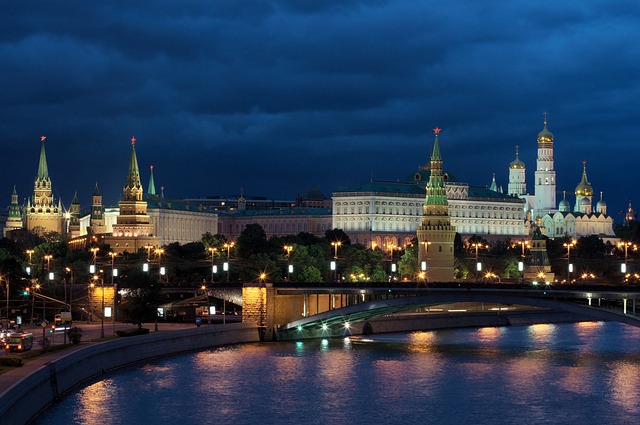
For the mere mortals among us, it’s hard to determine exactly what’s going on with Trump and Russia. To get the bottom of things, it may help to look at the backstory. There’s no denying that Russia and America have had a rocky road in the past. While things have always been a little strained, we did manage to find some level of calm. But, a NATO bombing of Yugoslavia in 1999 put a chilly slant on things. Add in one Vladimir Putin (elected in 2000), and you have an ice age on your hands.
But, what have the main issues been? Well, let’s be honest, the cold war got a little…cold. That did nothing to strengthen the relationship. Aside from that, the arguments between our countries come from a direct split in ideologies. Capitalism and communism don’t get on for obvious reasons. Add in the fact that the U.S. and Russia are some of the largest nuclear countries in the world, and you have a real conflict. Perhaps, for world peace, it would be best if we all ‘got along’, but our differing approaches only fuels the fire more.
But then, along came Trump. Despite other negative connotations to his presidency, he did at least seem willing to solve the Russia/U.S. split. In fact, during his election campaign, Trump heralded Putin as ‘very smart’, and gave every indication that he would treat Russia as an ally. He even tried to turn attention from Russia during the election hacking scandal.
Of course, the good times didn’t last long. We now find ourselves in a position where relations are more strained than ever. Given where we’ve been in the past, that’s hard to believe. But, the relationship has spiralled, perhaps in part due to the possibility that there was a light at the end of the tunnel. So, where did things go wrong? To get to the root of the rift, we need to revisit April 4th, when Syrian president Bashar al-Assad was allegedly responsible for dropping chemical weapons on his people. Chemical weapons which Russia had removed.
In an arguably rash counter attack, Trump ordered the dropping of 59 Tomahawk cruise missiles. It’s not hard to see, then, why things deteriorated so fast. Overnight, Trump and Putin went from the perfect pair to bitter enemies. And, for some, the change was too subtle to keep on top of. But, rest assured, the old order has been restored when it comes to our relationship with Russia.
So, where are we now? Recently, political figures such as Idaho’s senator, Mike Crapo, have been pushing hard for new Russian sanctions. The new bill, signed by a grudging Trump on the 2nd of this month, makes it harder for him to lift the sanctions if he wishes.
Trump’s reluctance seemed to come about due to remaining hopes of reestablishing relations with Russia. While that seems unlikely, the bill will ensure we can at least hold some level of control over what Russia does overseas.


